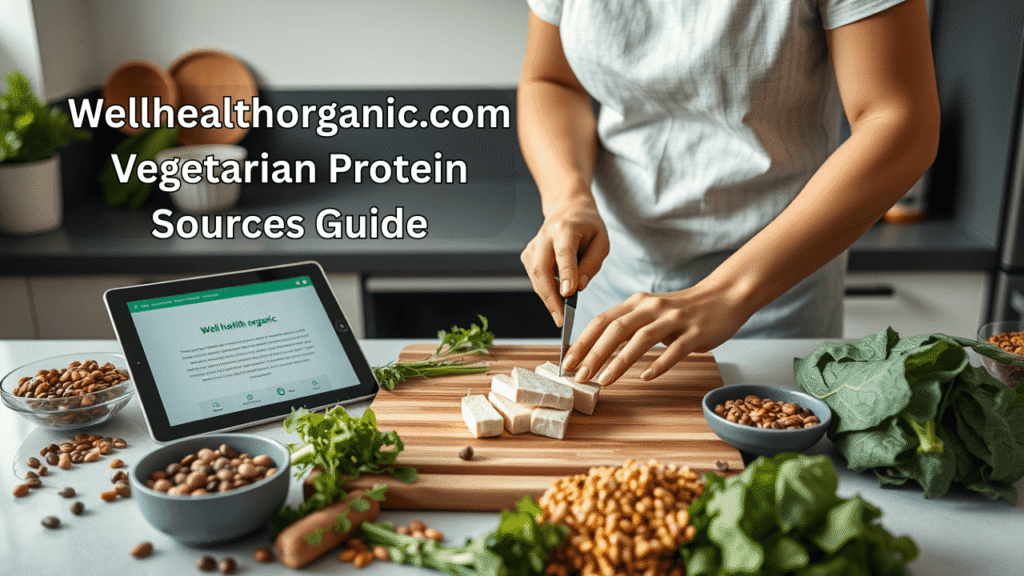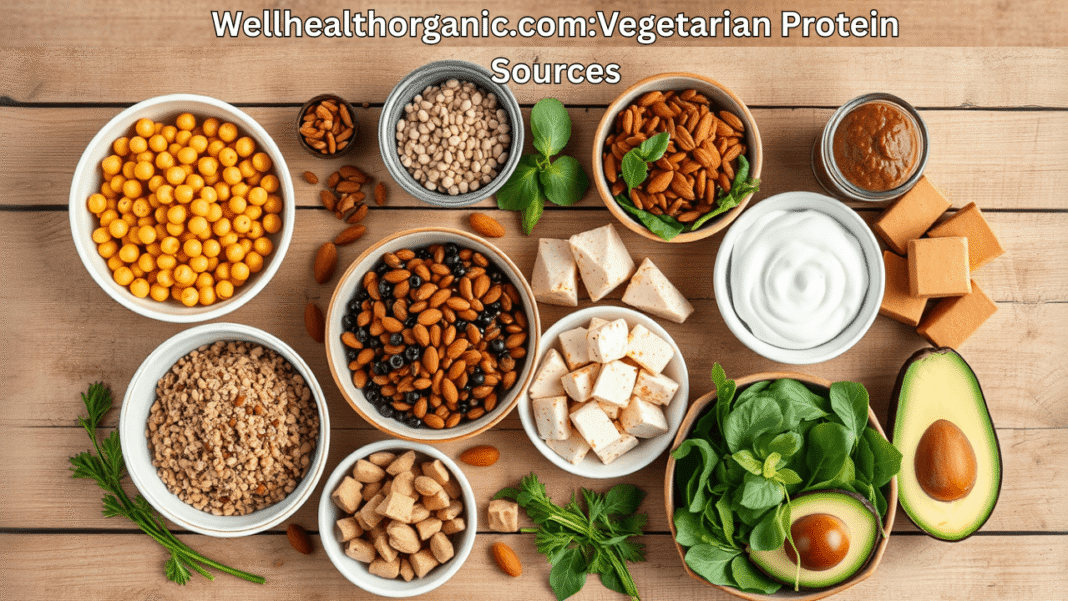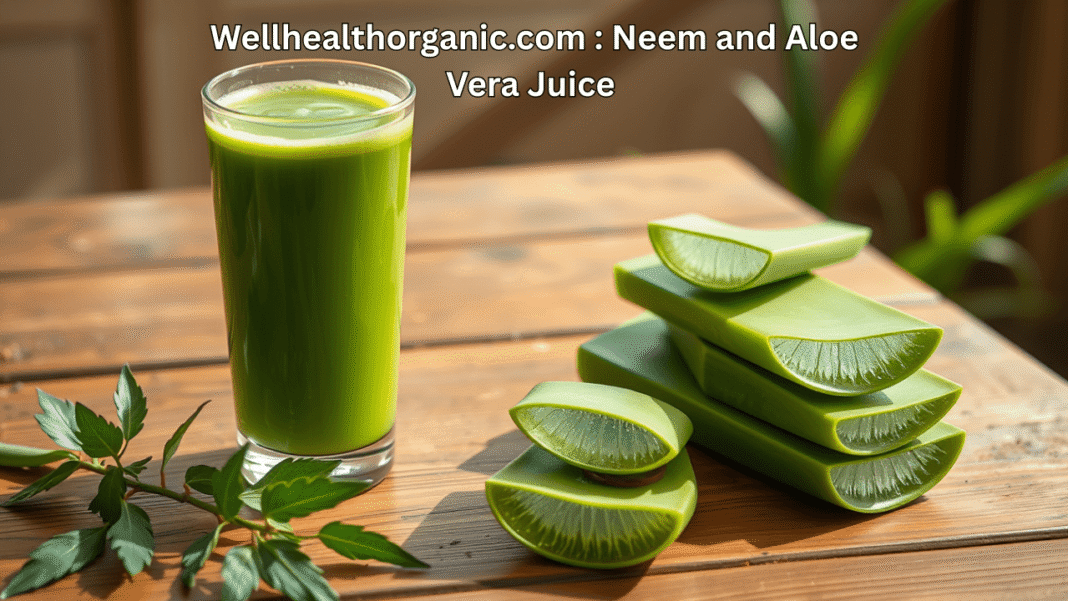When people think of protein, the image that often comes to mind is a juicy steak or grilled chicken. But meat isn’t the only way to get your daily dose of protein. With growing interest in healthier, more sustainable eating, wellhealthorganic.com:vegetarian protein sources offers a practical and easy-to-follow guide to plant-based protein options that nourish the body without relying on animal products.
From health-conscious gymgoers to full-on vegans, more and more folks are making the switch—not just for themselves, but for the planet. So, what’s the deal with vegetarian protein? Let’s dig in.
Protein 101: Why Your Body Cares
Your body loves protein like your phone loves its charger. Without it, everything slows down. Protein helps build muscle, repair tissue, make enzymes and hormones—it’s literally the fabric of you.
And no, you don’t need a slab of meat to get there. The key? Variety. That’s where wellhealthorganic.com:vegetarian protein sources really shines.
A World of Protein Without the Meat

So, what exactly are we talking about when we say “vegetarian protein”? It’s not just tofu and quinoa. You’ve got legumes, seeds, nuts, grains, dairy (if you’re into that), soy products, even plant-based powders.
wellhealthorganic.com:vegetarian protein sources lays it all out in digestible bites—pun intended.
Here’s a quick snapshot:
- Legumes: Chickpeas, lentils, black beans—fiber and protein in every bite.
- Nuts & Seeds: Almonds, chia, flax, and hemp—little nutritional bombs.
- Quinoa: That rare plant-based complete protein.
- Soy Products: Tofu and tempeh—super versatile and protein-packed.
- Dairy: Greek yogurt, cheese, milk—for lacto-vegetarians.
- Innovative Options: Seitan, nutritional yeast, and jackfruit.
Legumes: Your Fiber-Fueled Protein Fix
You can’t talk vegetarian protein without praising legumes. Chickpeas, lentils, black beans—these little guys pack serious muscle-building power.
Protein Content Snapshot:
- Chickpeas: 19g per 100g
- Lentils: 18g per 100g
- Black beans: 21g per 100g
- Kidney beans: 24g per 100g
Not only are they protein-rich, but they’re also loaded with fiber, iron, folate, and magnesium. According to wellhealthorganic.com:vegetarian protein sources, legumes also keep your heart healthy and blood sugar stable. Toss them into soups, stews, curries, or even hummus, and you’re good to go.
Nuts & Seeds: Small Size, Big Punch
If legumes are the heavy lifters, nuts and seeds are the multitaskers. Almonds, walnuts, chia, hemp—these aren’t just crunchy toppings. They’re power-packed snacks with omega-3s, protein, and essential minerals.
Protein Content Quick Glance:
- Almonds: 21g/100g
- Walnuts: 15g/100g
- Chia Seeds: 18g/100g
- Hemp Seeds: 31g/100g
Add them to smoothies, sprinkle on oatmeal, stir into yogurt, or grind them into nut butters. The possibilities? Endless. And according to wellhealthorganic.com:vegetarian protein sources, they fit perfectly into any diet plan.
Quinoa: Nature’s Tiny Supergrain
Ah, quinoa—the golden child of the grain world. It’s one of the few plant-based foods with all nine essential amino acids.
A single cup of cooked quinoa serves up around 8 grams of protein, plus plenty of fiber, iron, and magnesium. Use it in salads, bowls, or even breakfast porridge. Wellhealthorganic.com:vegetarian protein sources doesn’t miss a beat when it comes to quinoa’s value.
Soy Stars: Tofu and Tempeh Takeover
Now, let’s talk soy. Tofu and tempeh aren’t just meat alternatives—they’re protein powerhouses with their own unique profiles.
Tofu:
- 10g of protein per 100g
- Mild flavor, super adaptable
- Stir-fry it, blend it into smoothies, or scramble it like eggs
Tempeh:
- 19g per 100g
- Fermented for gut health
- Great for grilling, sandwiches, or curries
According to wellhealthorganic.com:vegetarian protein sources, both are staples for anyone trying to eat clean and protein-rich.
Dairy Delivers (For Lacto-Vegetarians)
If you’re not vegan and still consume dairy, you’ve got some strong protein options.
- Milk: 8g protein per cup
- Greek yogurt: 10g per 100g
- Cheese: Up to 30g depending on type
Greek yogurt, especially, is a favorite of fitness lovers. Mix it with fruit, nuts, or even savory toppings, and you’ve got a protein-packed snack that hits the spot. Wellhealthorganic.com:vegetarian protein sources recommends it as a top-tier dairy choice.
Going Plant-Based: The New Frontier
The plant-based food world is booming. And guess what? It’s delicious.
Here are some of the coolest newcomers:
- Seitan (aka “wheat meat”): 25g protein per 100g, with a chewy meat-like texture.
- Nutritional Yeast: 8g protein per 2 tbsp, plus vitamin B12. Sprinkle it like cheese.
- Jackfruit: Less protein but fantastic for mimicking shredded meat.
- Plant-Based Protein Powders: 20g+ per serving—great post-workout.
As wellhealthorganic.com:vegetarian protein sources explains, these innovative options are changing the game for athletes and busy folks alike.
Health and Earth: A Double Win
You already know that vegetarian proteins are good for you. But did you know they’re good for the planet, too?
Plant-based proteins usually have:
- Lower saturated fat
- Fewer calories
- More fiber
Plus, they use way less water and land than meat, and they produce fewer greenhouse gases. According to wellhealthorganic.com:vegetarian protein sources, that’s a big deal in the climate fight.
Real-Life Tips to Boost Your Veg Protein Game
Wondering how to actually get started? Here’s how wellhealthorganic.com:vegetarian protein sources makes it easy:
- Start With What You Know
Add beans to your chili. Toss nuts in your salad. Stir chia into yogurt. - Try One New Ingredient Weekly
Maybe tempeh this week, quinoa next. Keep it fun, not overwhelming. - Use Protein Powders Smartly
Great in smoothies, oats, or even homemade bars. - Mix and Match
Combine grains and legumes—like rice and lentils—for a complete protein combo. - Plan for Balance
Think protein + fiber + fat. That combo keeps you full and energized.
In Summary: It’s Easier Than You Think
Wellhealthorganic.com:vegetarian protein sources makes one thing crystal clear: you don’t need meat to meet your nutritional goals. With the right combination of legumes, nuts, seeds, grains, and innovative plant-based options, you’ll hit those protein marks—and feel amazing doing it.
Looking for powerful, natural sources of protein? Along with plant-based options, consider why Wellhealthorganic.com : Buffalo Milk Good For Health— for its exceptional health benefits, protein content, and digestive value.
Whether you’re fully vegetarian or just trying to eat less meat, the path to balanced, clean protein is wide open.
So, ready to fuel up with plants? Your body—and the planet—will thank you.
FAQ – Because You’ve Got Questions
1. What are the top vegetarian protein sources?
Legumes, nuts, seeds, grains like quinoa, soy products, dairy, and plant-based powders. All covered by wellhealthorganic.com:vegetarian protein sources.
2. Can I build muscle on a vegetarian diet?
Absolutely. Just mix your sources and get enough total protein.
3. Are these proteins complete?
Some are (quinoa, soy), but mixing grains and legumes does the trick too.
4. How much protein do I really need?
Roughly 0.8g per kg of body weight. More if you’re active.
5. Are plant proteins better for the environment?
You bet. Less land, water, and carbon footprint. Win-win.



